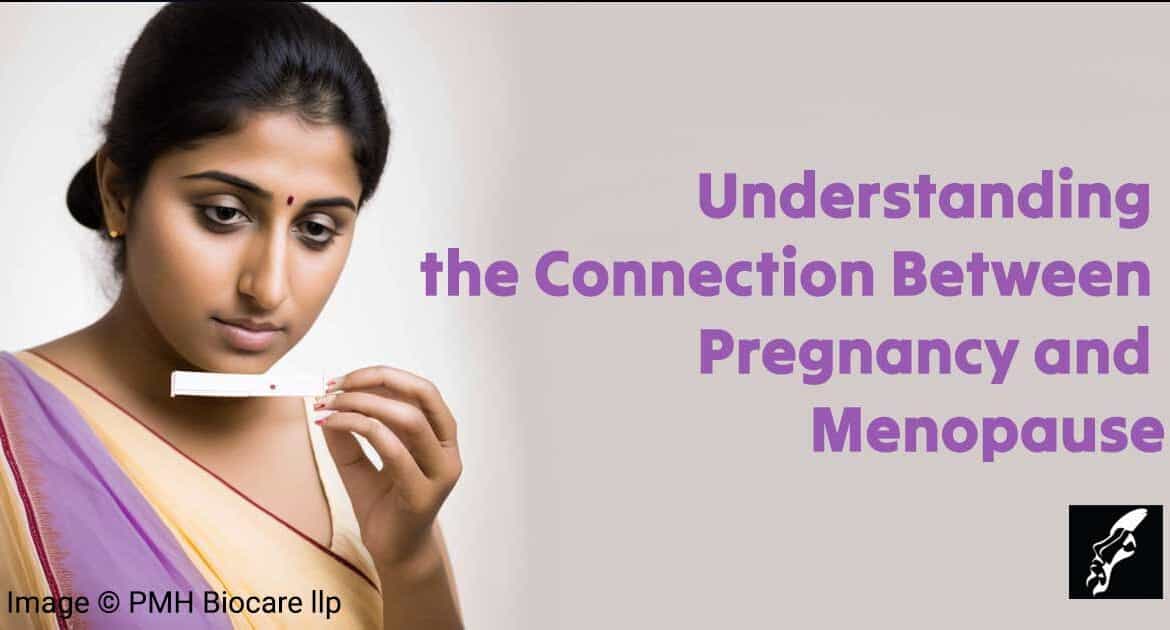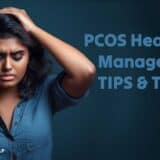Understanding the Connection Between Pregnancy and Menopause

Pregnancy is a period of significant hormonal changes that occur in a woman’s body. These changes are essential for supporting the growth and development of the fetus.
Some of the most significant hormonal changes that occur during pregnancy include:
- Increased levels of estrogen and progesterone : These hormones are essential for maintaining a healthy pregnancy. Estrogen helps to support the growth of the uterus and the development of the fetus, while progesterone helps to prevent contractions and prepare the breasts for breastfeeding.
- Increased levels of human chorionic gonadotropin (HCG) : This hormone is produced by the placenta and is responsible for maintaining the pregnancy during the first trimester.
- Increased levels of prolactin : This hormone helps to prepare the breasts for breastfeeding and is essential for milk production.
- Decreased levels of follicle-stimulating hormone (FSH) and luteinizing hormone (LH) : These hormones are responsible for regulating the menstrual cycle, and their decreased levels during pregnancy prevent ovulation.
Pregnancy is a time of change, and the hormonal changes remind us that we are capable of incredible transformations.
Common Symptoms during Pregnancy:
The hormonal changes that occur during pregnancy can cause a range of symptoms, including:
- Nausea and vomiting : This is a common symptom during the first trimester of pregnancy and is often referred to as morning sickness.
- Fatigue : Increased levels of progesterone can cause fatigue during pregnancy, especially during the first and third trimesters.
- Breast tenderness : Increased levels of estrogen and progesterone can cause breast tenderness during pregnancy.
- Mood swings : Hormonal changes can cause mood swings during pregnancy.
- Frequent urination : As the uterus expands, it can put pressure on the bladder, causing frequent urination.
Managing Symptoms during Pregnancy:
There are several ways to manage the symptoms of pregnancy, including:
- Eating small, frequent meals : This can help to reduce nausea and vomiting.
- Getting plenty of rest : This can help to reduce fatigue.
- Wearing a supportive bra : This can help to reduce breast tenderness.
- Staying active : Exercise can help to improve mood and reduce the risk of gestational diabetes and high blood pressure.
- Practicing stress-reducing techniques : This can help to reduce mood swings.
Hormonal Changes during Menopause:
Menopause is a natural process that marks the end of a woman’s reproductive years. It is a period of significant hormonal changes that occur as the ovaries stop producing eggs.
Some of the most significant hormonal changes that occur during menopause include:
- Decreased levels of estrogen and progesterone : These hormones play a significant role in a woman’s menstrual cycle and are responsible for maintaining bone density, skin elasticity, and vaginal lubrication.
- Increased levels of follicle-stimulating hormone (FSH) and luteinizing hormone (LH) : These hormones are responsible for regulating the menstrual cycle, and their increased levels during menopause reflect the body’s attempt to stimulate the ovaries to produce more estrogen.
Common Symptoms during Menopause:
The hormonal changes that occur during menopause can cause a range of symptoms, including:
- Hot flashes : This is a sudden feeling of warmth that spreads across the body, often accompanied by sweating and a rapid heartbeat.
- Night sweats : This is excessive sweating during sleep that can disrupt sleep and cause discomfort.
- Vaginal dryness : Decreased levels of estrogen can cause vaginal dryness, itching, and discomfort during sex.
- Mood changes : Hormonal changes can cause mood swings, irritability, and anxiety.
- Sleep disturbances : Hormonal changes can also cause sleep disturbances, such as insomnia and restless sleep.
Managing Symptoms during Menopause:
There are several ways to manage the symptoms of menopause, including:
- Hormone therapy : This involves taking estrogen and progesterone to replace the hormones that are no longer being produced by the ovaries.
- Lifestyle changes : Eating a healthy diet, exercising regularly, and getting enough sleep can help to reduce symptoms.
- Vaginal moisturizers and lubricants : These can help to relieve vaginal dryness and discomfort during sex.
- Medications : Antidepressants, anti-anxiety medications, and sleep aids can help to manage mood changes and sleep disturbances.
Conclusion
Understanding the connection between pregnancy and menopause can help you better prepare for the changes that come with each stage of life. Pregnancy is a period of significant hormonal changes that support the growth and development of the fetus, while menopause marks the end of a woman’s reproductive years and is characterized by a significant decrease in hormone production. Managing symptoms during these phases of life can be challenging, but there are several ways to manage them, including lifestyle changes, medications, and hormone therapy. If you are experiencing symptoms related to pregnancy or menopause, seek support from a healthcare professional.
FAQs
Q: Can you get pregnant during menopause?
A: It is possible but unlikely to get pregnant during menopause. However, it is important to use contraception until you have gone 12 consecutive months without a period.
Q: Can menopause cause weight gain?
A: Yes, hormonal changes during menopause can cause weight gain, particularly in the abdominal area. However, maintaining a healthy diet and exercise routine can help to manage weight.
Q: Can menopause cause depression?
A: Yes, hormonal changes during menopause can cause mood changes, including depression. Seeking support from a healthcare professional can help to manage depression.
Q: Can you experience symptoms of both pregnancy and menopause at the same time?
A: No, pregnancy and menopause are two separate phases of a woman’s life, and symptoms of one should not overlap with the other.





